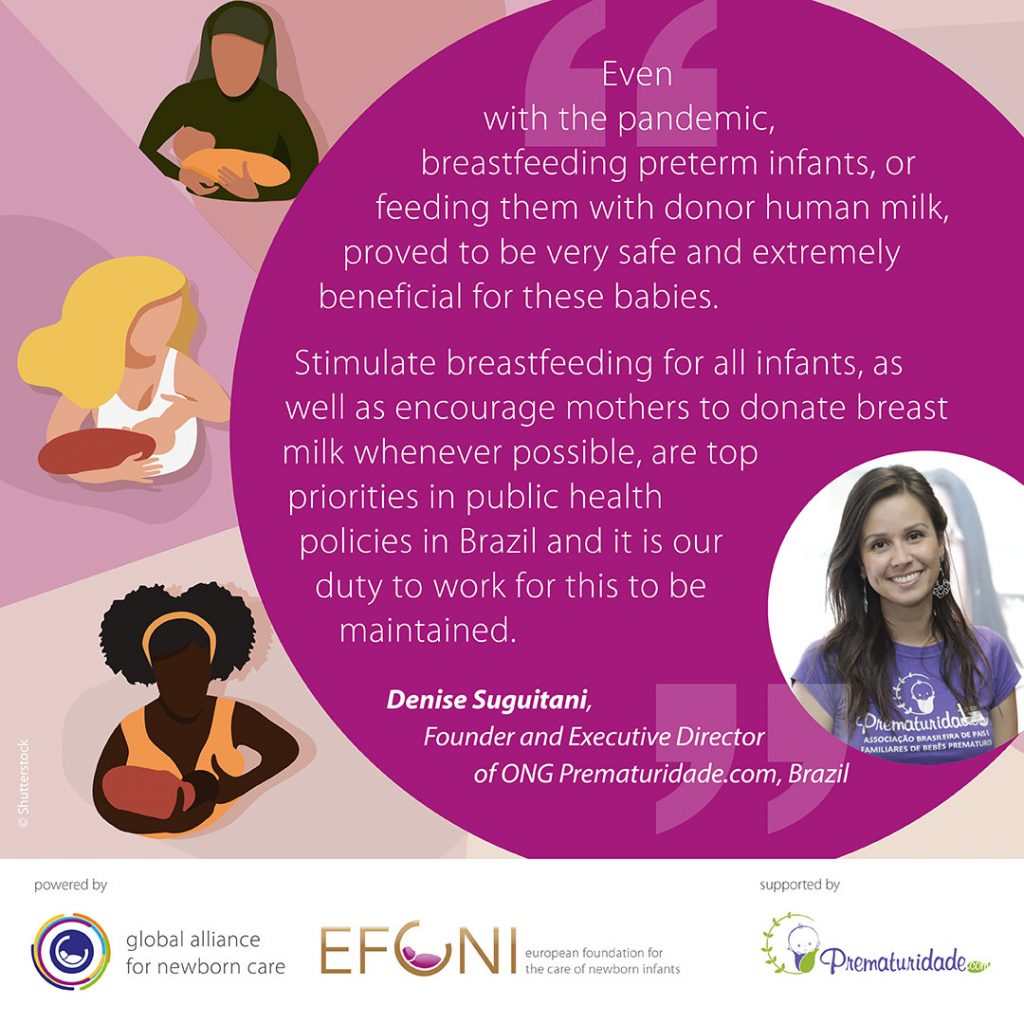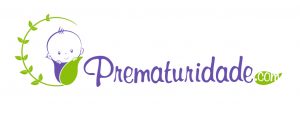Breastfeeding is potentially one of the top nutrition interventions that can reduce the mortality of children under 5 years of age. For preterm infants, breastfeeding is also an important strategy to warrant health and quality of life, as well as bonding, and although it can be a more difficult process, it is possible and should be encouraged, protected, promoted, and supported by everyone: healthcare professionals and families.
children under 5 years of age. For preterm infants, breastfeeding is also an important strategy to warrant health and quality of life, as well as bonding, and although it can be a more difficult process, it is possible and should be encouraged, protected, promoted, and supported by everyone: healthcare professionals and families.
For those preemies whose mothers cannot provide breastmilk, the second-best option of nutrition is pasteurised donor human milk from milk banks. Brazil has some encouraging results and inspiring initiatives when it comes to both breastfeeding rates and human milk donation. For instance, only 44% of babies are breastfed in their first hour of life worldwide, while in Brazil this figure is around 62%, and being 45,8% of babies exclusively breastfed at 6 months. There are 756 milk banks in 66 countries. Brazil is home for 30% of these. This network supplies around 60% of preterm and low birth weight babies in neonatal intensive care units across the country.
The scenario is far from perfect, but it is possible to learn from the experience in Brazil. The Brazilian kangaroo method, which includes early skin-to-skin contact and breastfeeding in its guidelines, is a public health policy widely propagated among professionals and the population and has primary health care as one of its pillars, ensuring the follow-up of at-risk pregnant women before delivery as well as of the mother-baby binomial after hospital discharge.
Brazil also has very strict legislation regarding the marketing of infant formulas as well as pacifiers and bottles, with heavy fines for industries, pharmacies, supermarkets, and stores in cases of violation. Another key factor is maternity leave. Women have the right to fully paid maternity leave, and in the case of mothers of preterm babies, they can add the period the baby was hospitalized to the total duration of the leave, thus being able to care for the baby at home.
Even during the pandemic, the Brazilian Ministry of Health, together with civil society organizations, such as the Brazilian Parents of Preemies’ Association, sought to guide healthcare professionals and the society regarding the safety of breastfeeding and donating human milk, spreading the word that these initiatives were a form of protection against covid-19 and not the other way round, and stressing the importance of maintaining these practices for children’s growth and development.
There is still a long way to go, but the strategies mentioned above can and should be implemented in other countries, aiming at increasing the success of breastfeeding preterm infants, regulating the operation of human milk banks, and encouraging donation.
Denise Suguitani, Founder and Executive Director of ONG Prematuridade.com, Brazil

